Bangladesh, a country of 165 million people, is at a critical juncture as long-simmering tensions have erupted into widespread violence. The resignation of Prime Minister Sheikh Hasina amid violent protests is a watershed moment in the country’s political landscape. Let’s look at the events that led to this remarkable shift and what it might signal for Bangladesh’s future.
The Spark That Ignited the Flame
What began as student protests against a controversial job quota system quickly spiraled into a nationwide movement calling for Hasina’s resignation. The initial “Students Against Discrimination” campaign transformed into a broader expression of discontent with the government’s policies and alleged authoritarian tendencies.
As protesters from various walks of life joined the cause, clashes erupted between demonstrators and supporters of the ruling Awami League. The situation rapidly deteriorated, with reports of over 100 deaths, including both civilians and law enforcement officers.
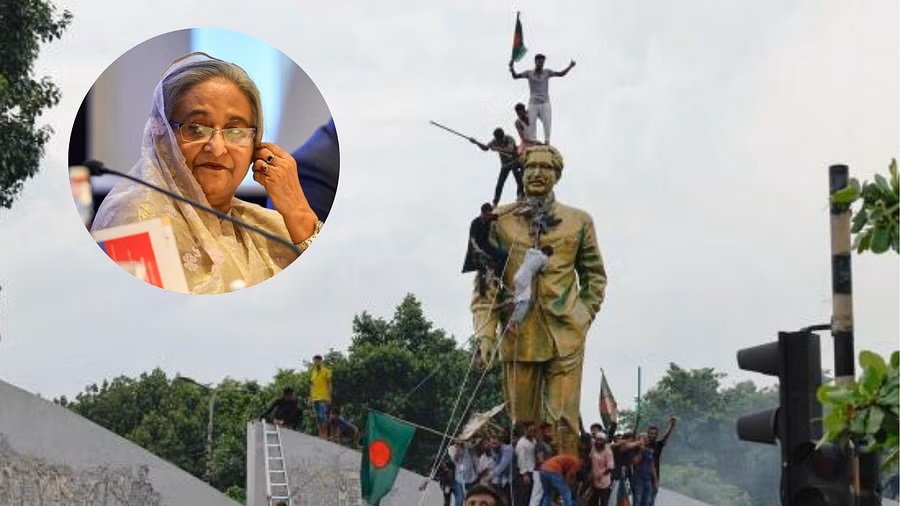
The Breaking Point
The turning point came when protesters breached the gates of Gono Bhaban, the Prime Minister’s official residence, on Sunday afternoon. This unprecedented breach of security seems to have been the final straw for Hasina’s government.
At an instance, Prime Minister Sheikh Hasina reportedly left Dhaka via military helicopter. While her exact destination remains unclear, there are unconfirmed reports suggesting she may have fled to a city in India.
The Interim Government Takes Control
With Hasina’s departure, Bangladesh Army Chief General Waqar-uz-Zaman announced the formation of an interim government. This transition of power marks a significant moment in Bangladesh’s democratic journey and raises questions about the country’s immediate future.
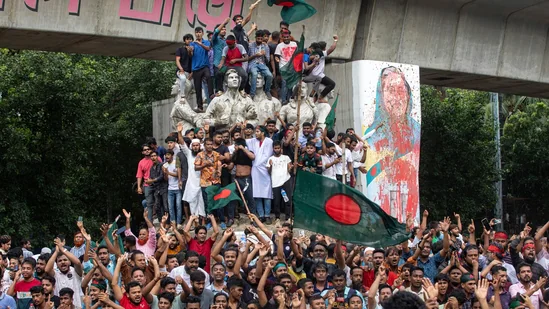
Five Factors Behind Hasina’s Fall
1. Job Quota Controversy: The initial spark for the protests was dissatisfaction with the existing job quota system, which many viewed as unfair and discriminatory.
2. Opposition Unity: The consolidation of various opposition groups and their ability to mobilize supporters played a crucial role in sustaining the movement.
3. Accusations of Authoritarianism: Critics have long accused Hasina of suppressing dissent and adopting increasingly authoritarian tactics to maintain power.
4. Economic Grievances: While Bangladesh has seen economic growth under Hasina’s leadership, concerns about inequality and lack of job opportunities have fueled discontent.
5. Widespread Participation: The movement’s ability to attract support from diverse segments of society, including students, workers, and professionals, gave it unprecedented momentum.
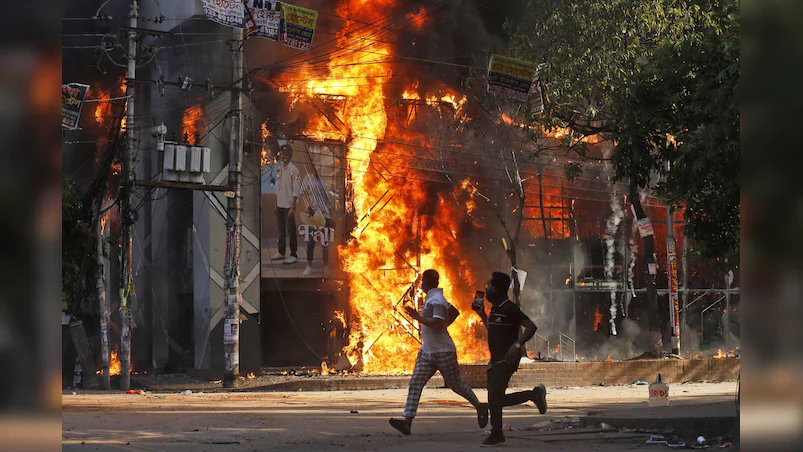
Regional Implications and India’s Response
The upheaval in Bangladesh has not gone unnoticed by its neighbors, particularly India. Reports indicate that Indian Prime Minister Narendra Modi has been briefed on the situation, and a high-level security meeting was convened in Delhi to discuss the developments.
India’s Border Security Force (BSF) has been placed on high alert along the 4,096 km India-Bangladesh border. BSF Director General Daljit Singh Chawdhary has personally travelled to Kolkata to oversee the situation, underscoring the seriousness with which India views the unrest in its eastern neighbour.
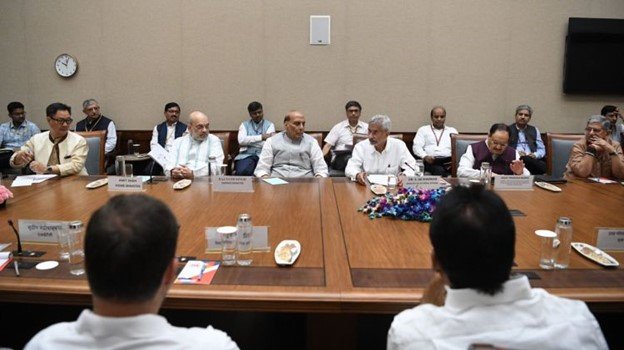
As Bangladesh grapples with this political upheaval, several key questions remain:
1. What role will the interim government play, and how long will it remain in power?
2. Will early elections be called to restore democratic governance?
3. How will the international community, particularly India and other regional powers, respond to the changing political landscape in Bangladesh?
4. Can the interim government address the underlying issues that fueled the protests, including concerns about job quotas and political freedoms?
The coming days and weeks will be critical in defining Bangladesh’s future. The interim government faces the difficult task of restoring calm while addressing the issues that sparked the protests in the first place.
As the dust settles on this difficult chapter in Bangladesh’s history, the world pays close attention. The settlement of this crisis will have far-reaching consequences not only for Bangladesh, but also for the stability of the entire South Asian area.











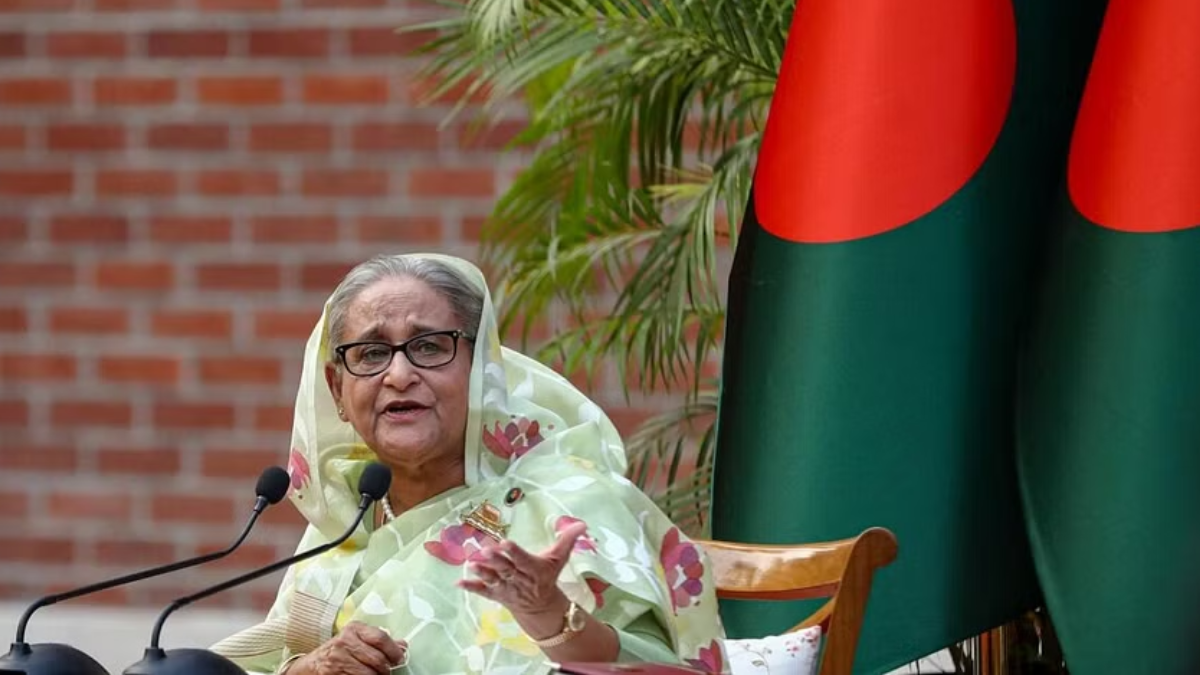




startup talky Very well presented. Every quote was awesome and thanks for sharing the content. Keep sharing and keep motivating others.
Tech to Trick I do not even understand how I ended up here, but I assumed this publish used to be great